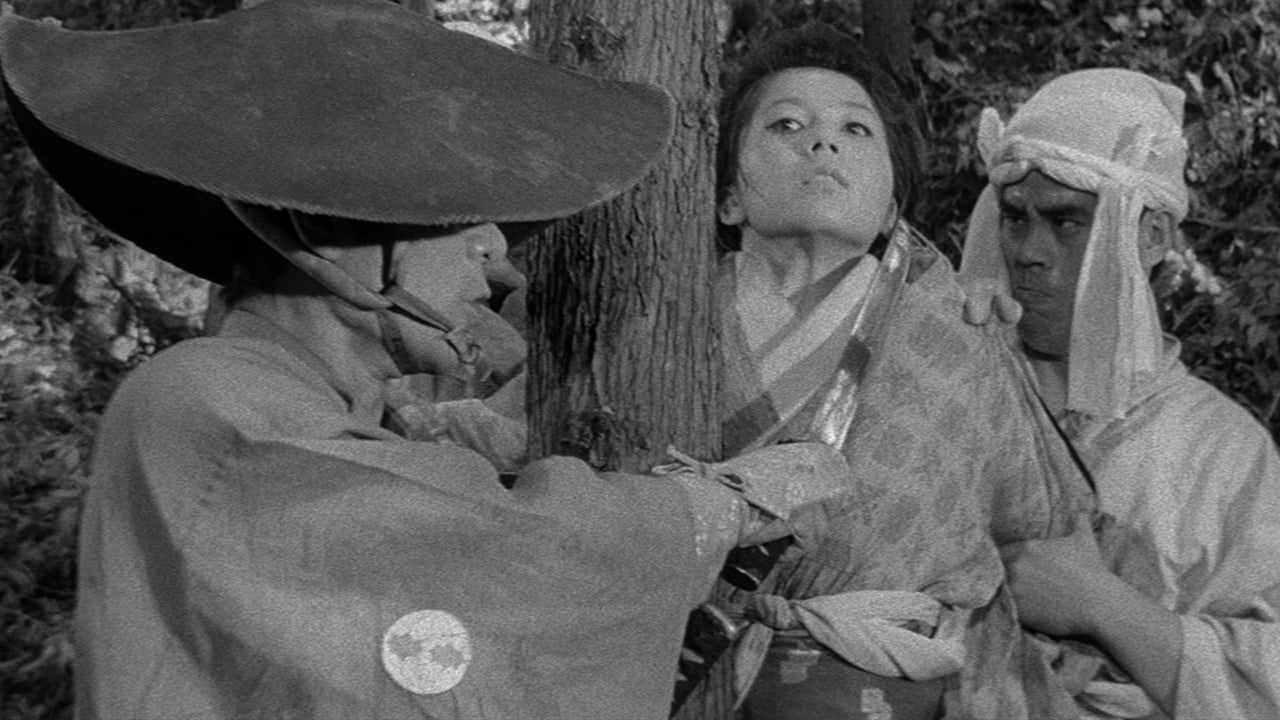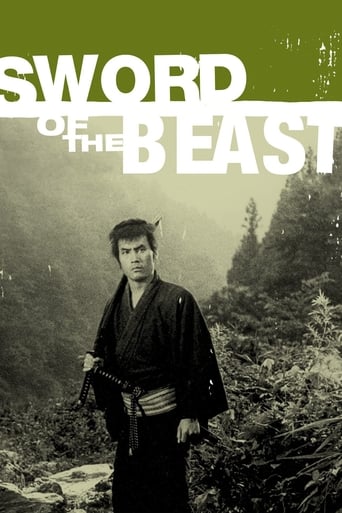Pacionsbo
Absolutely Fantastic
Usamah Harvey
The film's masterful storytelling did its job. The message was clear. No need to overdo.
Mehdi Hoffman
There's a more than satisfactory amount of boom-boom in the movie's trim running time.
Payno
I think this is a new genre that they're all sort of working their way through it and haven't got all the kinks worked out yet but it's a genre that works for me.
gypzzy
The plot of this film with all its brilliantly weaved in subplots, is as fresh as it was on release simply for its varied human emotions involved.It is brilliantly constructed plot for its masterful simplicity and coherence.I beg to differ with the previous review that the plot is complicated.It has been masterfully shot by Toshitada Tsuchiya.Though not as exclusively done in Hara Kiri, the issue of the insurmountable Samurai-pride is touched upon and exposed for its obvious conflict with human values and frailties.The universal theme of power-centers exploiting desperate individuals for its ends and expending with them once the latter serve out the former's purpose is explored in this film.The theme of the ever-resillient individuals faced with debilitating order and the need to escape the same to be free and alive is the principal theme of this film. Even in its length the film is just one and a half hours.It is so good one would wish it were longer!! This film is highly recommended for anyone interested in films, along with Samurai-drama fans and those who appreciate good cinematography. Definitely a classic.
lastliberal
It is interesting that the supposed "beast" in this film is the one who acts with the most honor among all the samurai involved.It is a short film that has many stories going on.Gennosuke (Mikijiro Hira) has been betrayed by the vice-Chancellor after he kills the Chancellor of the clan and is on the run, a "beast" forced to live in the forest. He befriends a gold digger, who really has an excellent part with laughs and thoughtful lines.He also comes across another samurai who has been living in the forest with his wife collecting gold for his clan and hoping for advancement. He, too, will be betrayed, and by the same person as betrayed Gennosuke.As everything gets sorted out, there is some good swordplay, and, like the western hero we are all familiar with, Gennosuke walks off into the sunset.Definitely makes me want to check out more of Hideo Gosha.
sc8031
As others have mentioned, this is a solid film about corruption among feudal samurai. The acting and cinematography are both good and the evolution in the characters throughout the film is solid. The action scenes, while not all too common, are very frenetic and gripping.It is easy to see why this was a Criterion release. There are certainly a number of good samurai movies, but this one isn't like all the others. The title may easily be confused in English with "Sword of Doom" and the protagonist does look quite a bit like Tatsuya Nakadai, but these movies and their themes are completely different. The movie also stayed with me after watching it. It left me thinking about cults, fraternities and clans. Individuals who dedicate themselves most selflessly to a cause or group, aren't they the easiest group members to sacrifice?
chaos-rampant
This early Hideo Gosha jidai-geki that was released by Criterion opens quite abruptly with a ronin named Gennosuke being hunted down for having killed his clan's counsellor. We're at 1857, on the brink of the Meiji reformation that saw Japan opening to the west after years of seclusion and the fall of the Tokugawa Shogunate. The central plot revolves around the struggle between the old and new in a country on the verge of change. Although short in duration (clocking in at 85 minutes), the story never lets up with numerous twists and a fast pace. A series of events will find Gennosuke and a prospector he meets along the way searching for gold in a mountain, until they get caught up in another clan's schemes. Nothing is what it seems though, and therein lies the beauty of Sword of the Beast. As the story progresses both forwards and backwards (with glimpses in Gennosuke's past in the form of flashbacks), the characters' motives are fully fleshed out and this provides the extra dramatic oomph that pushes Sword of the Beast above "merely OK" territory. Behind all the swordfighting (and there's enough of it to be enjoyed here, certainly not Lone Wolf and Cub though), Gosha has a story to communicate. With beautiful natural exteriors photographed in stark black and white, confident directing from Gosha, very good swordfighting scenes from actors who know their trade and decent performances all around, Sword of the Beast should appeal to all jidai-geki fans. It's neither as monolithic and tragic as Masaki Kobayashi's work from the same time nor as lyrical as Kurosawa's, but it stands somewhere in the middle, stripped to the essentials with a focus on story and theme.

